Money's Just Cash
Who gets it, and what can they spend it on?
Money makes open case, close
Money bend law, make war, make ghosts
Money gives a poor man hope
Money saves lives, takes lives, money both
Money is, money isn't, money's just that
Money's just a concept people attract
Tax up the poor man, feed up the fat
Money's just, money's just, money's just cash
Song: Ren Gill
It’s money, but not as you know it.
Let’s begin today with funny money, the pretend stuff you can use for some things and not others. Most of us have probably experienced imitation cash at some point. Taxi chits, meal vouchers, perhaps a gift card.
Funds for a particular purpose that can’t be used for general spending. Not being a universal means of exchange means they’re not actually money.
That’s ok, though; they’re an extra, stopping you from being out-of-pocket. But what if that was all you had, if you had no general-purpose money, only a way of paying for specific things?
I can’t imagine many of us would like that, and yet some people seem really keen on limiting the ability of others in just this way. Regardless of whether most people can make sensible choices and good decisions without being treated like children, our government says it’s not worth the risk for the few bad eggs that spoil it for everyone.
So we’re going down this road of payment cards for beneficiaries, even though the vast majority of those on subsistence level benefits are not frittering the taxpayer dollars they’ve been given away on gambling, alcohol, or any of those other bad things that we allow to be advertised on Television.
Hmm, that was a bit off-topic, but actually, if something like gambling is viewed as such a no-no, then why the hell are we advertising it on TV? You’ve probably seen the adverts portraying it as being exciting and fun, not the lonely misery that is the reality for many.
Payment Cards for Bottom Feeders.
Officials from the Ministry of Social Development (MSD) have had some concerns about the move to payment cards, indicating that they can be stigmatising, open to exploitation, lead to welfare dependency and negatively impact child welfare.
However, Minister Louise Upston says money management will be designed to work for New Zealand. So that’s nice, isn’t it? Maybe they’ll be printed with the legend “Bottom Feeder” to give them that distinctly Kiwi feel of our country under Luxon?
The report noted, “Payment cards are also one of the most easily circumvented aspects of money management, as people can sell them for cash or simply buy goods which they then sell for cash”.
Upston said the Select Committee process will deal with potential issues, which seems wildly optimistic. However, judging by the photo the Herald used, she seemed… I don’t know. What would you call this expression? Confident?
Labour’s social development spokeswoman Carmel Sepuloni said, “The officials made really clear the issues with the upped or increased usage of a payment card ... but it seems the Government is just persevering despite the evidence in front of them.”
That does rather sound like this government: it looks at the evidence, ignores the experts, and ploughs on regardless because, this time, it’ll be different.
Sepuloni said, “We’re seeing job losses en masse, and then people are relying on the welfare system during these difficult times - it doesn’t seem fair that on top of that, they’re getting these punitive measures and this stigmatisation put on them.”
Which seems like a pretty good point.
So why now?
Jeez, Louise, we get it. Nobody wants people to receive a benefit and be able to use it for the sort of things the rest of us can freely spend our money on. What’s the point in helping people if you can’t complain about doing it, while you’re doing it, right?
But have you seen the latest unemployment stats, Minister? We're not at the point where people are sitting around luxuriating in the state's lap, reluctant to return to work.
As reported by RNZ yesterday, “A record nearly 400,000 people are on some form of benefit - almost the same proportion of the population as after the Global Financial Crisis (GFC) - and there's a warning that number will increase before it falls again.”
This is a crazy time to be focusing on punitive measures against those on benefits, with the government laying people off at regular intervals and their austerity settings resulting in rising unemployment.
You don’t need to whip these people harder. Plenty of them are desperate to get off the safety net and back into paid employment. These degrading measures just add insult to injury at a time when people could use a bit of compassion.
What about other recipients of government money?
Why just monitor those without work? What about others who receive government money, like those on Working For Families? That’s targeted government assistance. Why do we not hold those recipients to the same constraints?
Or how about politicians? The taxpayer pays Christopher Luxon’s salary. Why is he not given one of these cards to ensure that he makes good spending choices from the public purse? We don’t want him using taxpayer money on non-essentials, do we?
Or the public sector? Those public servants have jobs, so even though they’re paid with taxpayer money, it would be a bit extreme to hold them to a different standard than the rest of the population. However, one group thinks that every detail of public sector spending should be criticised and admonished as wasteful, as surely as if it were an imagined unemployed person pouring their benefit into a pokies machine.
Demonising the Public Sector.
Take this example. If you are familiar with our film industry, you’ll know that funding is a mammoth exercise that, in many cases, takes literally years of dedication and belief. Anything to do with the arts in this country is done on the smell of an oily rag.
Without people like NZ on Air and the NZ Film Commission, our stories would disappear from our screens. Yet this is how they are portrayed? It makes me feel sick.
These lobbyists at the Taxpayers’ Union (TPU) sneer and belittle all public spending while turning a blind eye to big corporates—their mates and sponsors; they never question their spending or bonuses. That’s the private sector; it is sacrosanct and exempt from criticism.
Even though the money comes out of your pocket, exactly as it does with the public sector, so is there a difference? Yes, you get to vote for the government and, in theory, set the parameters of public spending - at least in so much as they are honest about their intentions once elected. With corporations, not so much.
Our big private sector near-monopolies, from banks to supermarkets, are free to gouge the Kiwi public for eye-watering and wallet-emptying profits. Meanwhile, the absolute bellends over at the TPU, who profess to care about the money in your pockets, remain silent.
Almost as if their cause has nothing to do with the wastage of our money but is purely about undermining and humiliating the public sector. They are brainwashing the public into seeing our essential workers as a drain on the rest. The end goal, presumably, is to have everything privatised and move further away from those with more paying their bit to help fund a common public good.
High Tea, more like high treason.
It’s not just the neoliberal propaganda of the TPU; you can find the same sort of thing in the NZ Herald. Take, for example, this headline from yesterday:
What were they thinking? At a time when every dollar is being scrutinised to see if it can be cut, Health NZ is spending up large on vol-au-vents? It’s bloody outrageous. Are you outraged? You’re supposed to be; that’s the purpose of the article.
Hold that thought because three hundred people were at the conference; $9,000 is about $30 a head. It doesn’t sound that horrendous, does it?
Are we losing perspective?
Let’s put that $9,000 into perspective. So far, the taxpayer has spent $170,000 doing up Premier House to meet Christopher Luxon’s expectations of what he is entitled to. For that amount, the government could’ve funded finger food for nineteen conferences. It must be mighty expensive wallpaper, I imagine.
If that last comment sounds a bit petty, consider that “$15,000 had been spent on new items including a mattress and bed base, a Sky TV connection, and other miscellaneous costs.”
Mind you, such expenditures for the PM’s use are minuscule when you consider the amount large corporations take from the Kiwi public to give to their shareholders.
Net profit after tax across banks operating in New Zealand was $7.21 billion last year. This is quite a lot of money compared to what Health NZ outrageously spent catering for their conference attendees at $30 a head.
The banks take $19,753,424.65 from Kiwis daily, $823,059.36 every hour, or $13,717.65 every minute - in pure profit. They take the equivalent of that $9,000 cost for hors d'oeuvres every 40 seconds.
Twenty-four hours a day, 365 days a year. Why on earth would anyone get outraged by Health NZ?
Whether it’s the TPU’s daily attacks, the Herald article above, or the coalition's pronouncements, the objective is to turn the Kiwi public against the public sector as surely as talkback radio likes to demonise the unemployed.
Because if you’re trying to sell the idea of hundreds of redundancies, what better way than to make it sound like the organisation is wasting money left, right, and centre?
Stand Up; Fight Back.
I know some of you read headlines like the one above and ask, “What can we do?” If you’re unhappy with the government's actions, be it attacks on the public sector, workers, or Māori, you might like to attend the following protest tomorrow.
You don’t have to be a union member, Māori, or anything other than a concerned citizen who wants to send a message to our government that you don’t like what they’re doing.
This is from the Public Service Association, or PSA:
On Wednesday, 23 October, we’re asking you to join with union members across Aotearoa to join a mass hui and Fight Back Together for workers’ rights and honouring Te Tiriti.
PSA members come to work to make a difference. Community, local government and public services keep Aotearoa running and ensure we all get the support we need, rather than only those who can afford to pay.
Government cuts and unprecedented attacks on the services we provide are doing long-term damage and risk eroding public faith in these services. The assault on Te Tiriti has led to an unprecedented number of Waitangi Tribunal claims against the government.
You can find much information about the protest, including times and locations, here.
We can’t just wait another two years and hope the country makes a decision next time that provides a safety net for our people without humiliation and is proud to fund our essential public services because those are things that matter: our health, education, and security.
Some of the stuff from the private sector—the ones who are free to take money from the pockets of Kiwis without people decrying the waste—is something we can do without at a time like this.
Not our public services, and not, incidentally, people who talk about what is happening. Our media is struggling, and on a personal note, it feels particularly hard for independent writers to get subscriptions at present.
If you found today’s newsletter informative, therapeutic, or amusing, please consider a $2 per week subscription to help fund it. Thank you so much if you can; it really means an awful lot. 🙂
This track came out a few days ago. It won’t be to everyone’s musical taste, but I think it’s bloody awesome.



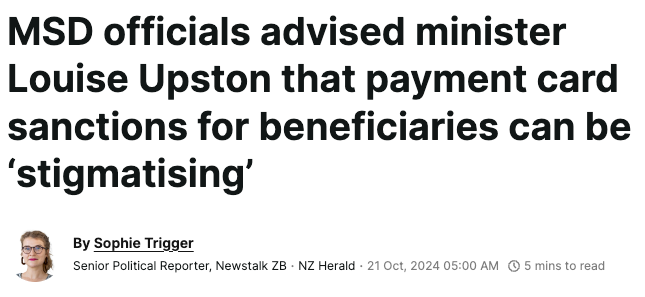
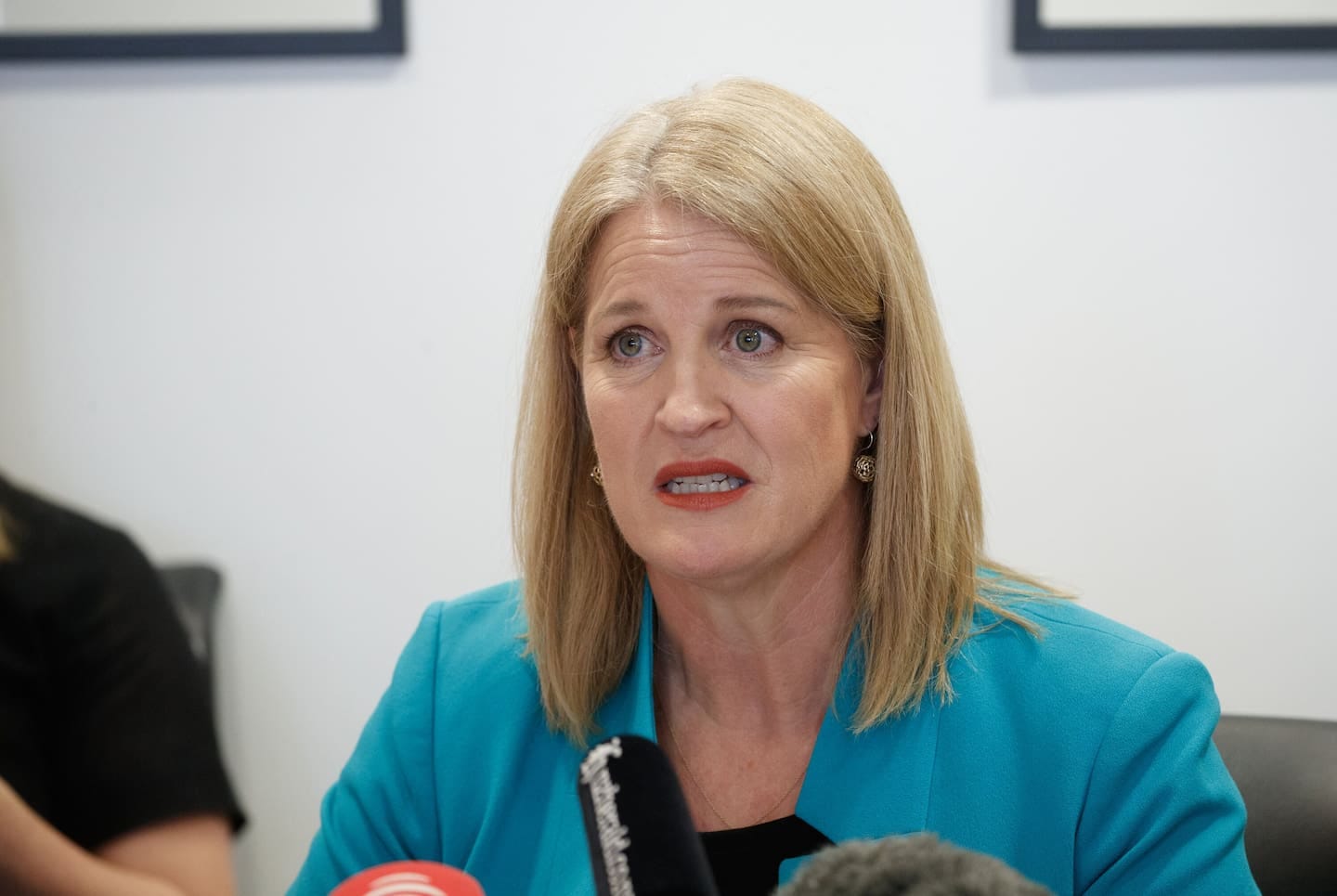

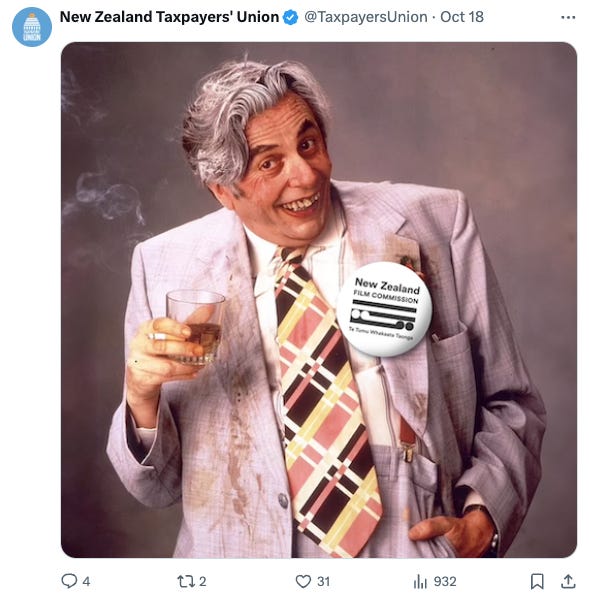
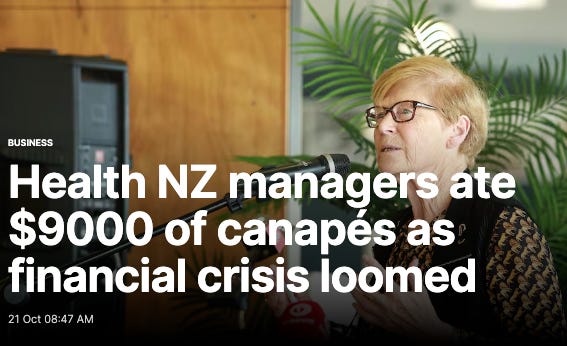

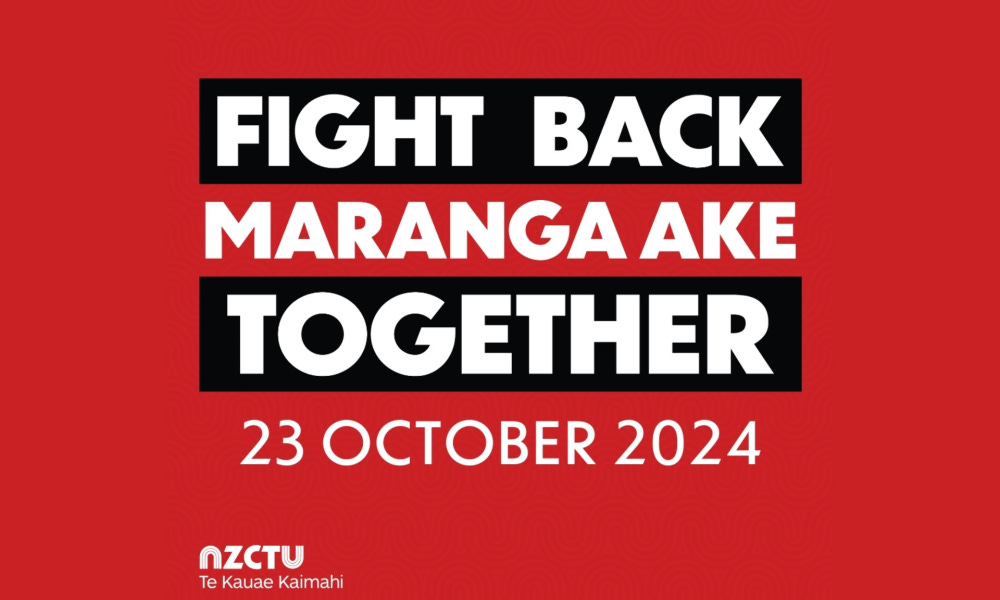
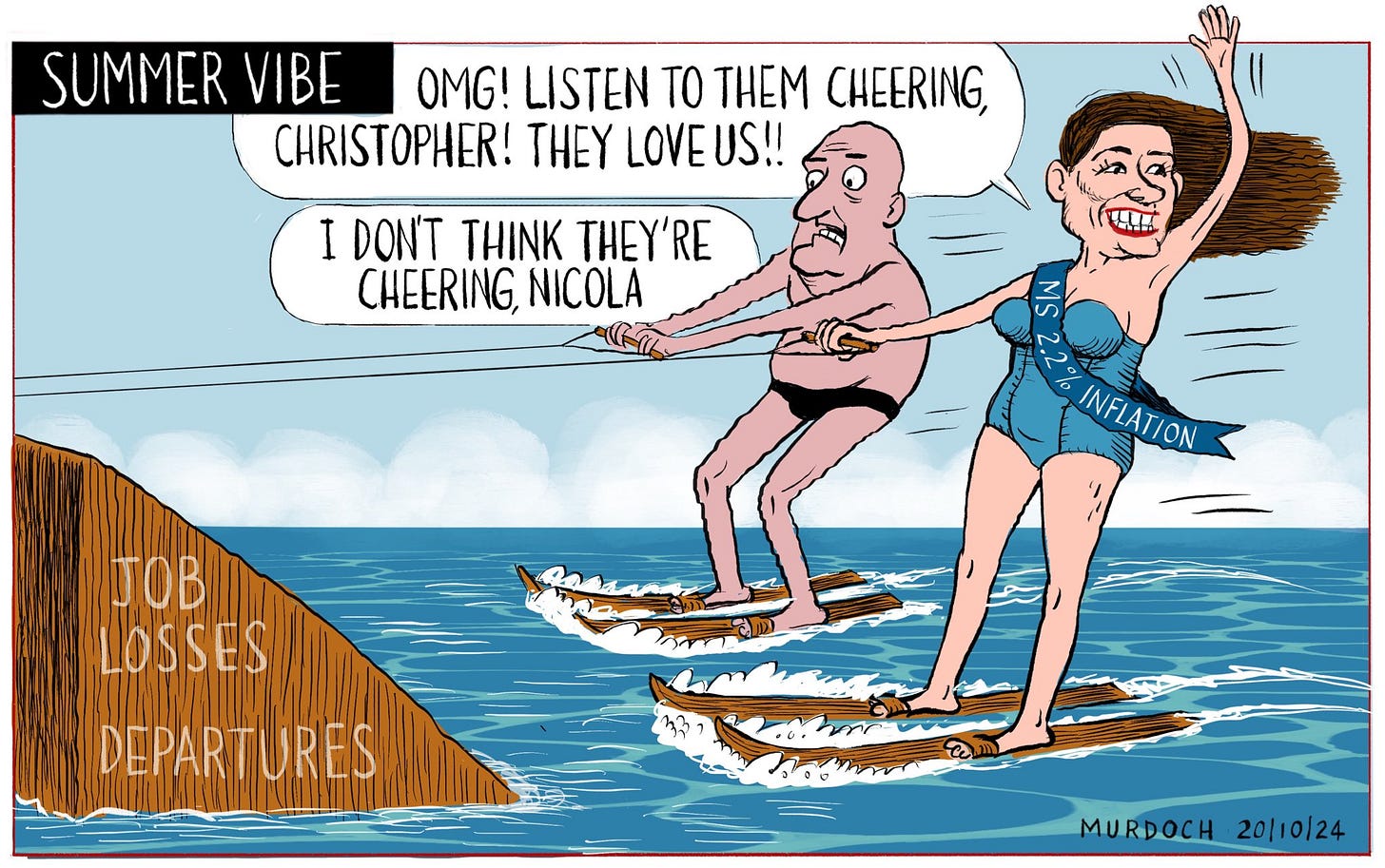
And some get it tax free. https://www.nzherald.co.nz/business/best-start-payments-to-rich-list-founders-rockets-to-37m-payment/M2A2CCJATBEBVD3DAE5HBJABMM/
This was going to be the song until I found the Ren one. Seriously catchy 90s pop - All 'Bout The Money...
https://www.youtube.com/watch?v=YcXMhwF4EtQ